One of the difficulties with most forms of media is that its creator are continually seeking to manipulate you into adopting their position. For this reason, I greatly prefer written content as opposed to audio or visual content as it is much easier for me to rapidly filter out the manipulative rhetoric built into what I am reading. Similarly, this is why, to the best of my ability, I try to avoid inserting manipulative language into my writing (as best as I can I try to follow the Golden Rule and not to do things to other people I don't like having done to me).
Recently an article began circulating stating that the pandemic pushers deserved amnesty for their actions over the last two years. This article was repeatedly shared in our community as a way of politely saying "How About No” to the author, and to illustrate that enough consequences from the vaccine are starting to emerge that the government has realized they may need to pivot to a new approach (which suggests additional issues from the vaccines will emerge in the future) and to have a viral article that attracts more readers to the author.
When I read through this article, I realize the author highlighted a very common problem I observe in human interactions (which I will admit I have also been guilty of). The author is demanding to receive forgiveness for their conduct, but in their apology, is refusing to admit they did anything wrong. In order to accomplish this, they utilized a variety of manipulative rhetorical constructs that are relatively simple and frequently utilized.
Because it is so common to encounter propaganda pieces like this, I thought there might be some value in illustrating my thought process as I read this article. I tried to not make this be too sophisticated so that it accurately portrayed what jumped out at me when I first read the article. Additionally, there are a few pieces of information I consider to be quite important to know in my commentary and many more in the comments.
In reading this analysis, it is important to remember that many people make their decisions based on what their peers or the media tells them to do (which is likely the audience this article was written for) rather than being self directed and using critical thinking to discern which decision makes the most sense to them. As a result, we almost certainly interpreted this article dramatically differently from its intended audience which is receptive to this style of persuasion.
Thinking about this article more, I believe the fundamental logical error in this article is that leaders should be absolved of their responsibility for making incorrect decisions if there was a degree of uncertainty with the information at hand. This is not the standard we have held our leaders to, as their job is always to make the best decision they can with the information that is available, and in most eras, if the decision was correct they were praised for their leadership, whereas if the decision was incorrect they were blamed for their mistakes. The “but I couldn’t have known!” excuse has never been deemed an acceptable way for leaders to justify their mistakes.
In the past, leaders have successfully navigated much greater degrees of uncertainty. In the case of COVID-19, Ron DeSantis, who had no previous training in public health or medicine, was able to look at the data himself and correct discern what policy needed to be followed. Although DeSantis deserves praise for his leadership, the fact that he was able to successfully figure this out without a scientific background demonstrates that the degree of “uncertainty” here was relatively trivial.
As this post shows, it can credibly be argued much of this article was intentionally deceptive. What I am more surprised by is the degree of a lack of insight the author shows into the mistakes that were made. I should note that this is very common behavior you will observe from those who have been influenced by cults or cult like groups.
I personally bear no ill will towards the author as I am used to dealing with people who drank the Kool-Aid , but I also believe she will need to offer something much more sincere if she wants to move on. Fortunately, I think the degree to which the vaccines were a scam is going to red-pill a lot of people who had previously been subservient to media propaganda, and if we patiently wait, much more genuine apologies will be forthcoming.
Additionally, one of the most well known examples of an insincere apology was the BP Gulf of Mexico Oil Spill. At the time the event happened, BP claimed it was a completely unexpected catastrophe, but in reality, they had recently had the exact same blowout happen in a Middle East country shortly beforehand, so they clearly knew the practice was unsafe. Once the spill started, BP engaged in a variety of PR tactics to make the public stop being mad at them (rather than fix the oil spill or compensate those affected by the spill), one of which was having the CEO give a highly misleading apology and state “we’re sorry” which was later parodied by South Park.
Let me know if you like this format and your thoughts on this article! I am very hopeful it was at least partly motivated by the pharmaceutical industry beginning to realize they sacrificed one of their largest markets (the childhood vaccination program) for their greed to get the COVID-19 injections into every American. Lastly, I am continuing to work on the piece detailing my thoughts on the causes of Alzheimer’s disease (I apologize for the delay on it).
Sources for this article include:
Healthcare officials intentionally lied about the vaccines.
NY Judge revoked vaccine mandate.
Canadian Premier endorses COVID-19 amnesty.
The CDC guidelines were nonsensical and unscientific.
Fauci and Birx continually fought Scott Atlas on the COVID-19 task force to push for unwarranted and harmful school closures.
This is what Trump actually said regarding disinfectants.
Reducing childhood vaccines prevented SIDS.
UV light device for the lungs.
Please consider sharing this article with the appropriate audiences (e.g. on Gab or GETTR, or with the button below for the more mainstream platform).
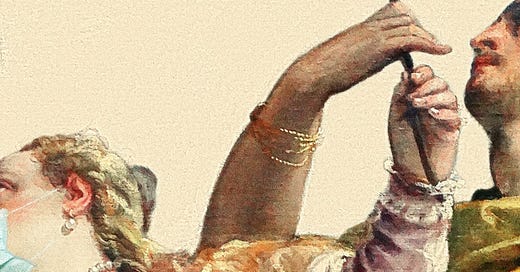


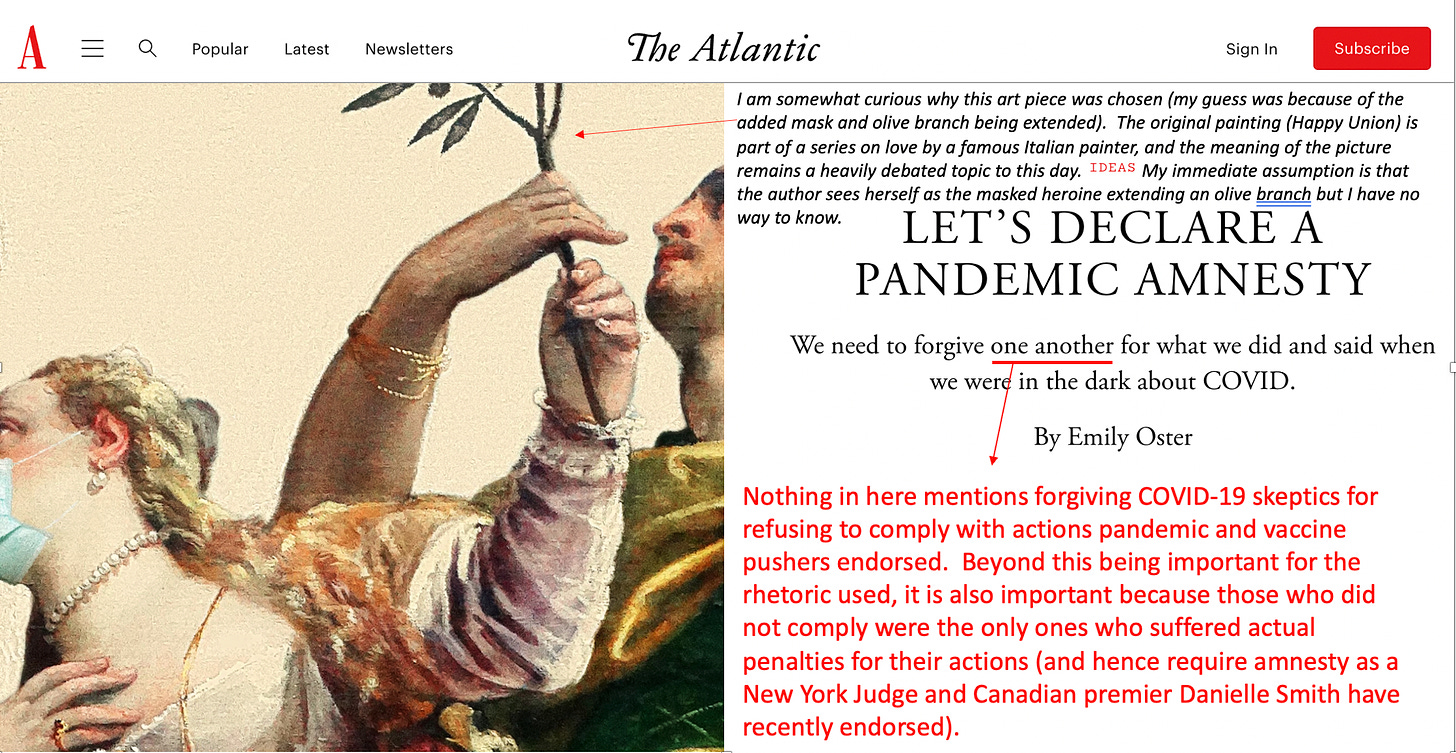

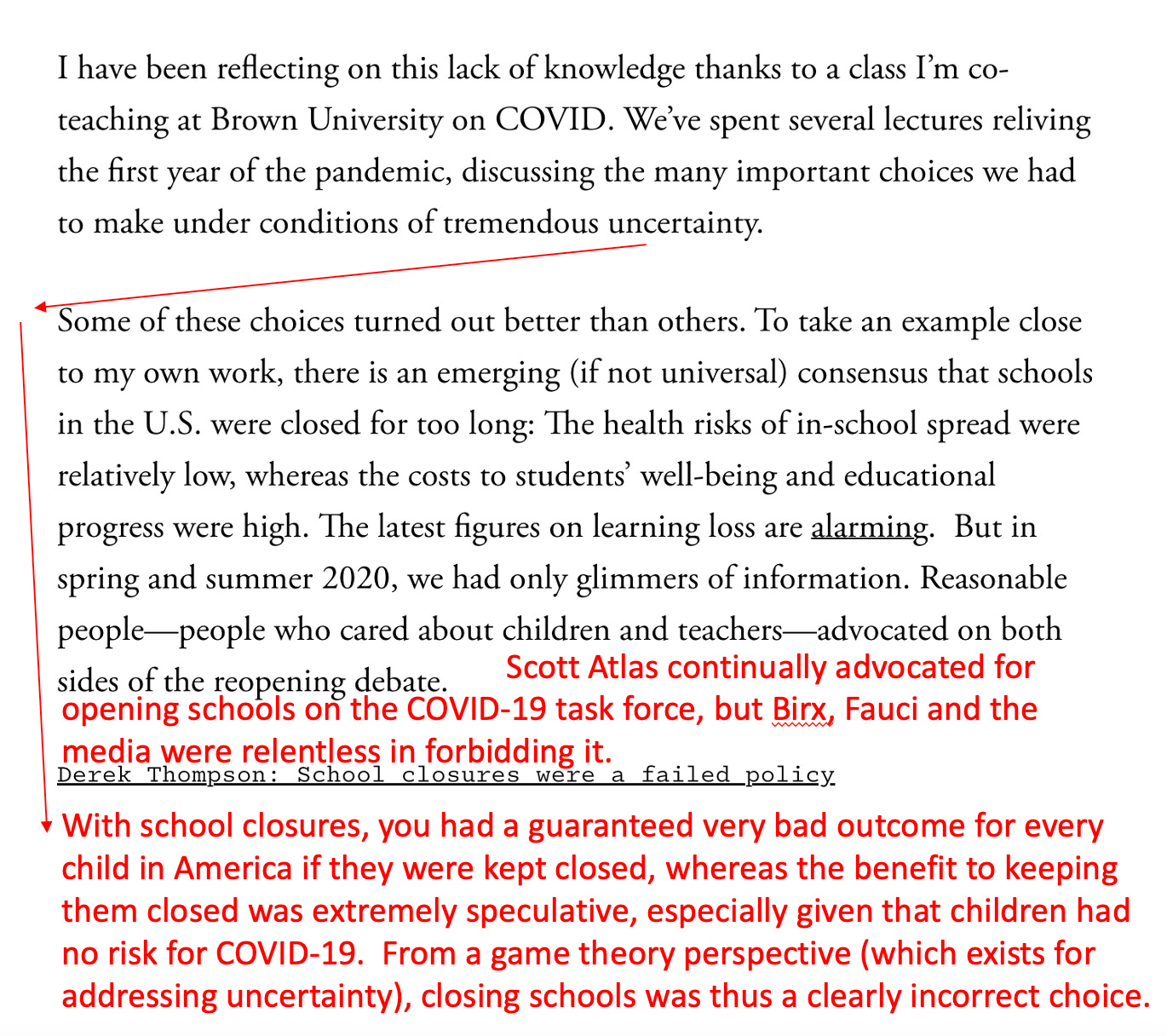
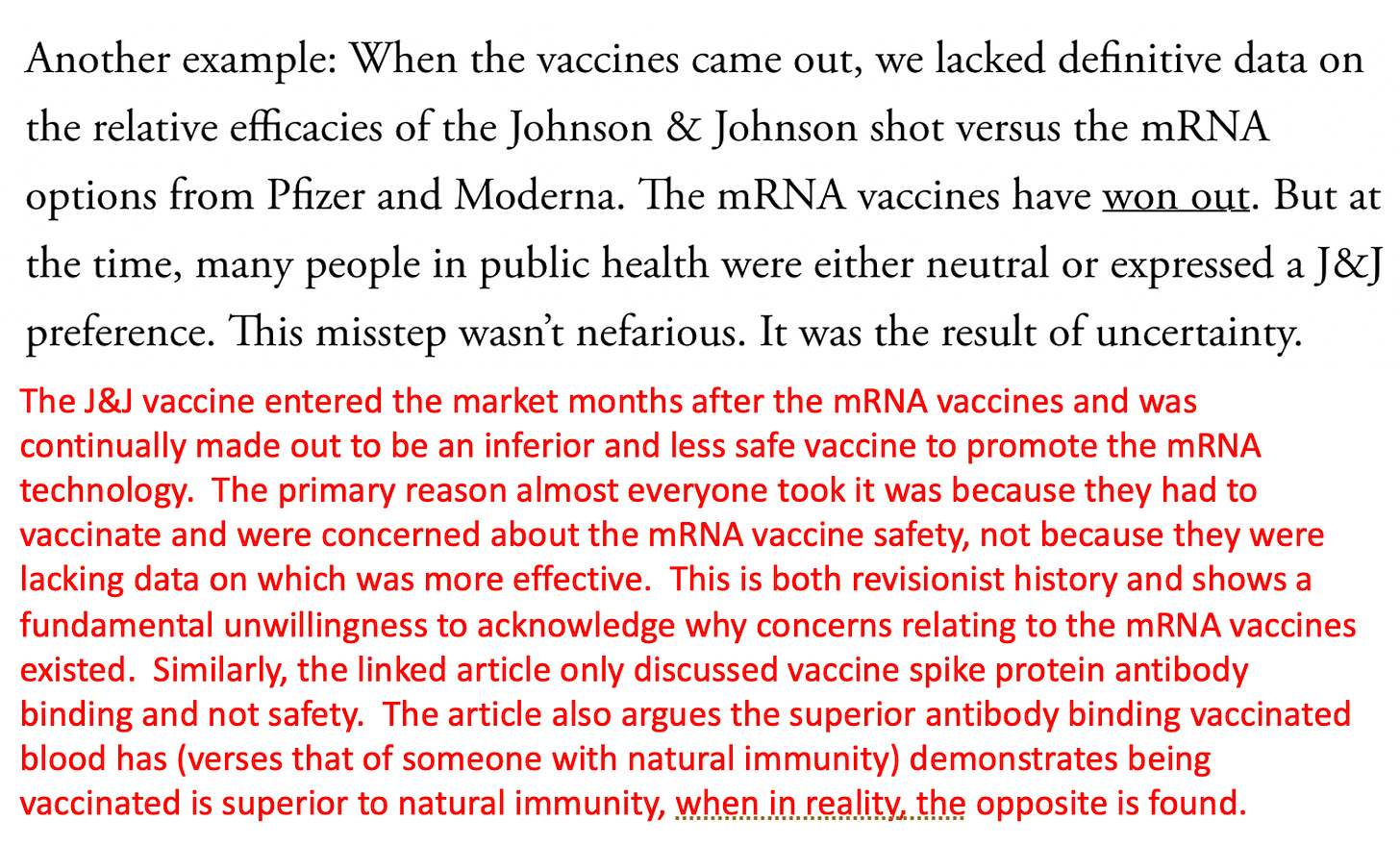
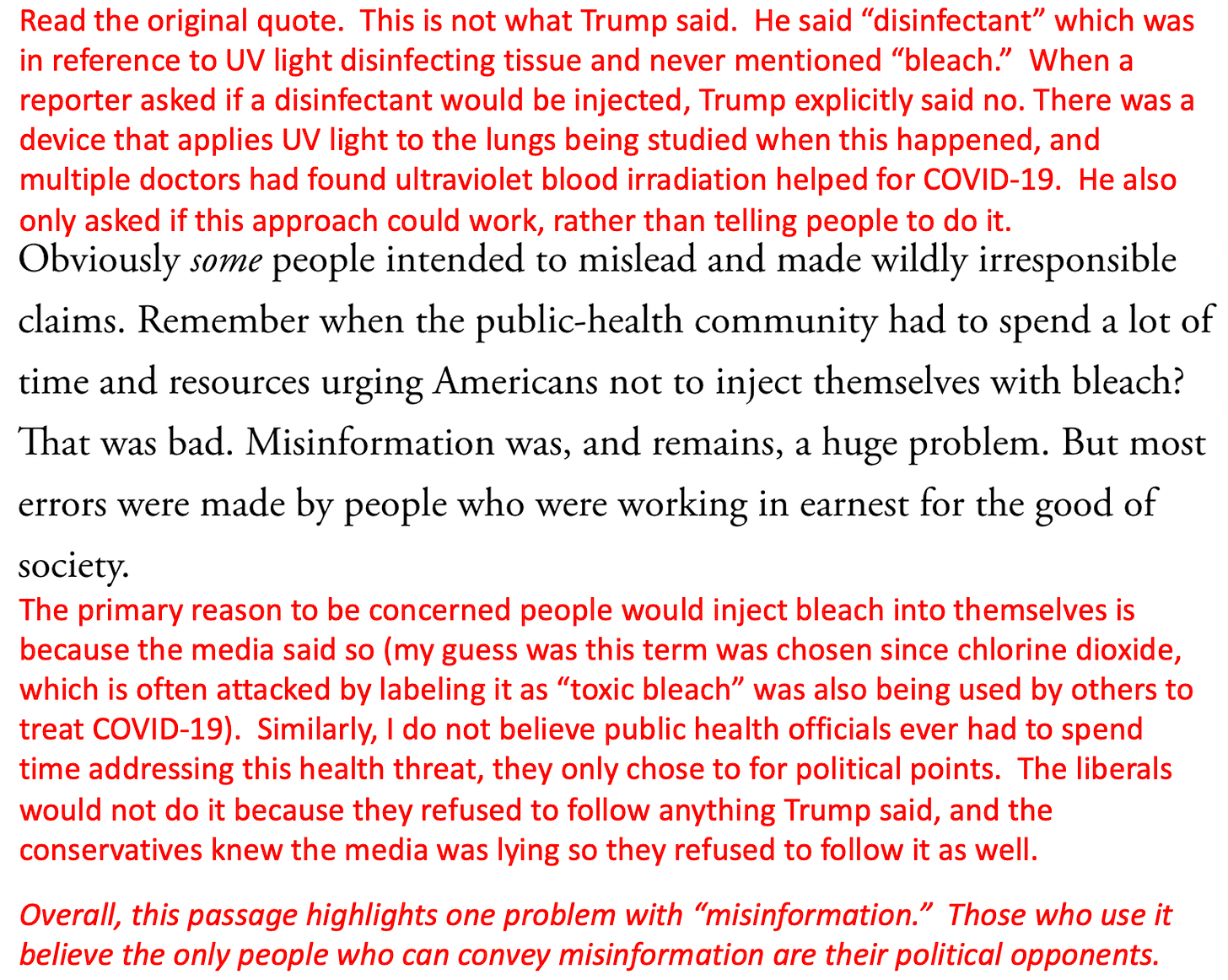

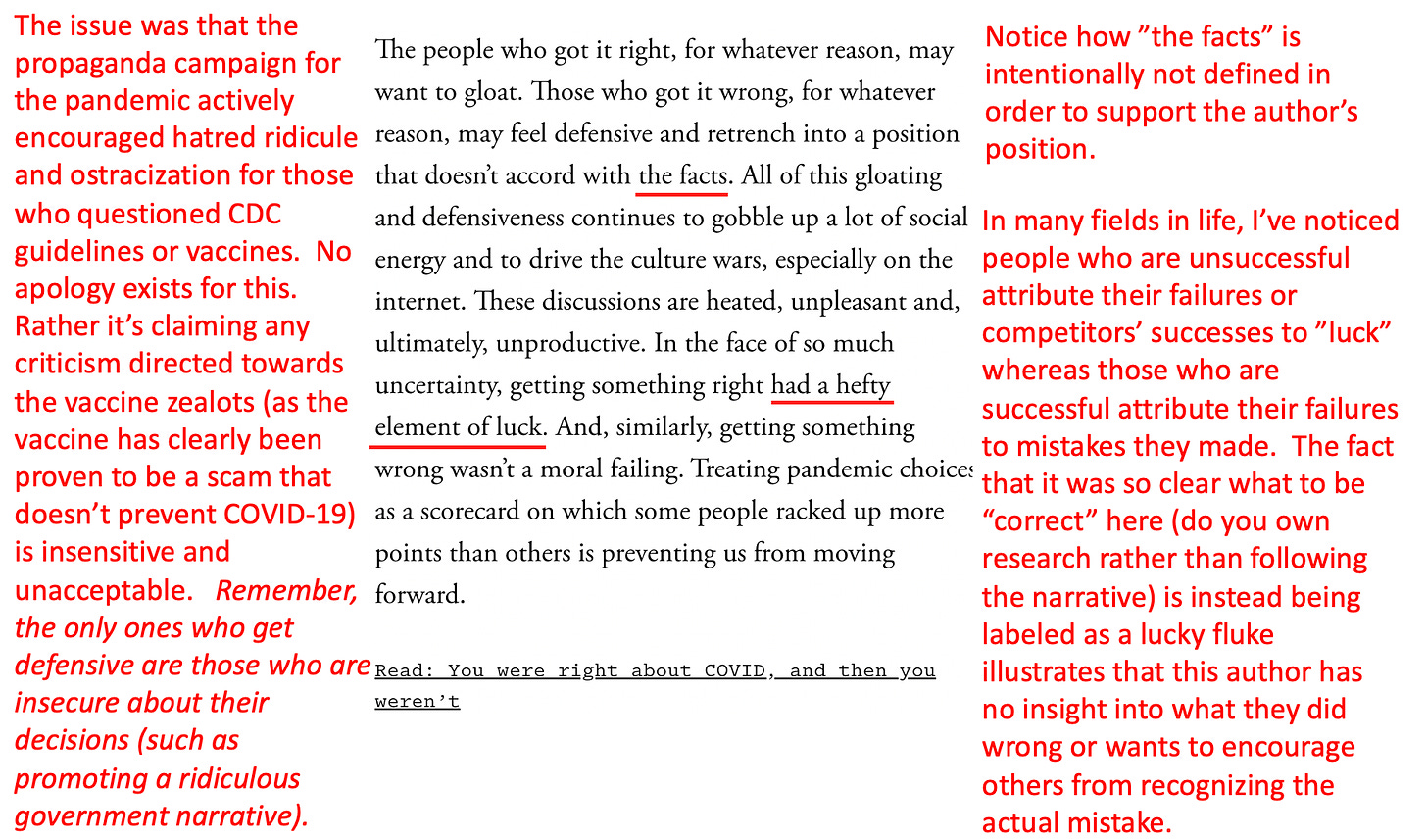





You picked out exactly the key passage to highlight what I think the Atlantic article really is: a cult intervention. When a cult member starts to express some doubts, other members have to intervene. They need to explain that the abuse suffered or perpetrated is part of some larger picture.
Then the doubting member has to perform some symbolic act or sacrament to demonstrate their continued obedience to the cult. In this case, as you point out, the obeisance is to get that vaccination rate back up.
"Forget past mistakes. Show your loyalty. Inject."
Do you have any idea, how one can try to heal the bridge between family and friends, who had a different view about covid?
I know some people who approached the dissolution of some of their friendships with the attitude "good riddance, they never were real friends at all and have shown their face, I have found friends who share my worldview now".
I can understand that view with recent friends, but in my case the problem is rather close family-members. I still love them and I also have forgiven them, but have lost a lot trust in them and frankly I am shocked how easy it was to incite hatred for the unvaccinated in them.